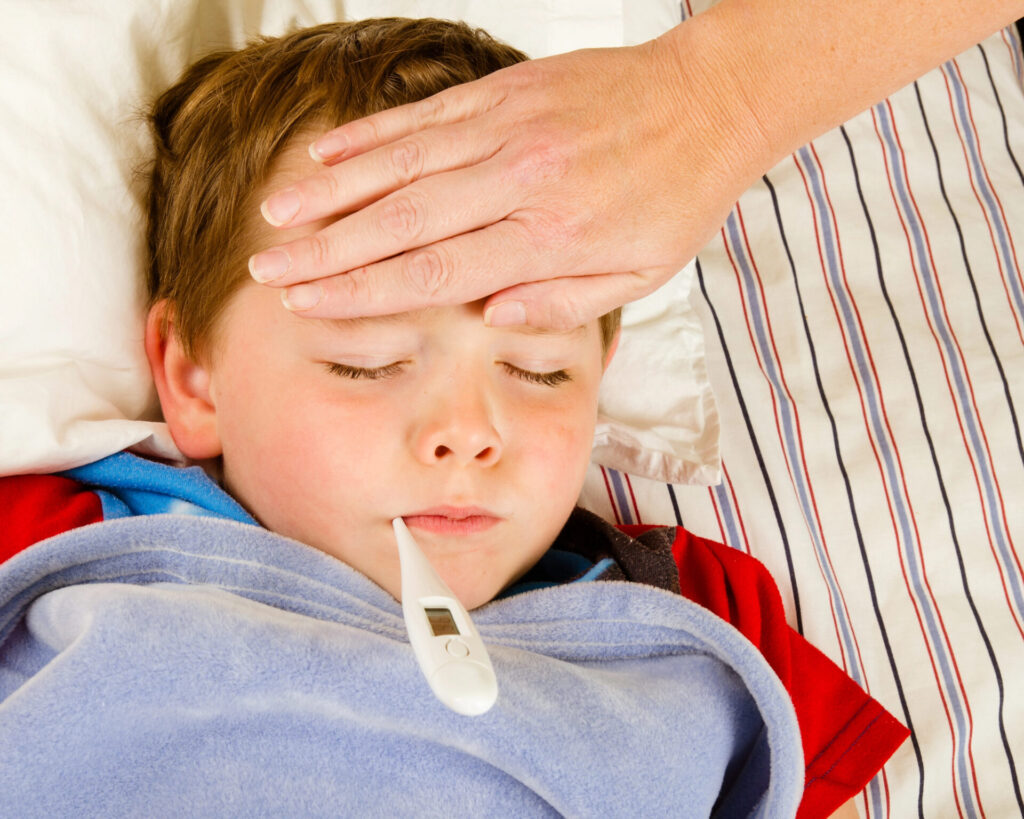Probiotic supplements are relatively inexpensive and widely available, supporting a range of health conditions. Systematic reviews have shown a preventative effect of probiotics on the incidence of upper respiratory tract infections (URTIs) and in reducing the symptom severity. Symptoms often include nasal congestion and discharge, sore throat, eye redness or drainage, cough, hoarseness, irritability, decreased appetite, sleep disturbance, and fever. Fever in particular is a source of concern for caregivers which may prompt a doctor’s or emergency department (ED) visit. Safe, adjunctive therapies that reduce fever are needed.
A new study published in JAMA Network Open showed a shortened fever duration by 2 days in children taking Lactobacillus and Bifidobacterium-based probiotics, a statistically significant difference compared to placebo.
An investigator-initiated triple-blind, placebo-controlled randomized clinical trial was conducted at an Italian pediatric ED. 128 patients aged 28 days to 4 years old brought to the ED with fever and URTI were enrolled. Patients were randomized to receive either 0.5 mL of a probiotic or placebo administered once daily for 14 days. The probiotic mixture contained Bifidobacterium breve M-16V, Bifidobacterium lactis HN019, and Lactobacillus rhamnosus HN001.
Exclusion criteria included patients with diarrhea, a history of probiotic supplementation in the previous 2 weeks, chronic autoimmune disease, ongoing treatment with immunosuppressive drugs, and hospitalization.
The primary outcome was fever duration. Caregivers were instructed to measure temperature rectally 3 times daily until the fever disappeared for more than 24 hours. Fever duration was reduced by 2 days in the probiotic group compared to the placebo group, with minimal side effects. The median fever duration was 3 days in the probiotics group versus 5 days in the placebo group. Antipyretics are often used to decrease fever but do not reduce overall fever duration.
Probiotics influence the gut microbiome, inflammatory processes, and gut and systemic immune response, impacting the upper respiratory tract and fever mechanism. Probiotics enhance humoral immunity and have shown antiviral activity. The strains of probiotics used in this trial modulate the expressions of interleukin 1, interleukin 6, and tumor necrosis factor, which play a key role in fever development.
Diarrhea incidence associated with antibiotic use was studied as a secondary outcome. Probiotics are well known to influence gut health and improve diarrhea; however, a statistically significant benefit was not observed in this study.
A limitation of this study is that the researchers didn’t reveal the URTI etiology. Antibiotic prescriptions were noted; however, it was not mentioned if any patients received antiviral medications. The study was conducted during the coronavirus pandemic between 2021-2023. These medications may impact the course of illness making it challenging to attribute fever reduction to probiotics only, treatment only, or probiotics plus treatment. The current study did show that fever reduction remained consistent even after adjusting for antibiotic use.
Conclusions
This is the first trial showing the efficacy of this probiotic mixture in reducing fever duration in children with URTIs. Fever management can be intimidating for parents, and a safe therapy like probiotics benefits the pediatric patient and their caregiver. Probiotics may also prevent the incidence of URTI and reduce other URTI symptoms.






